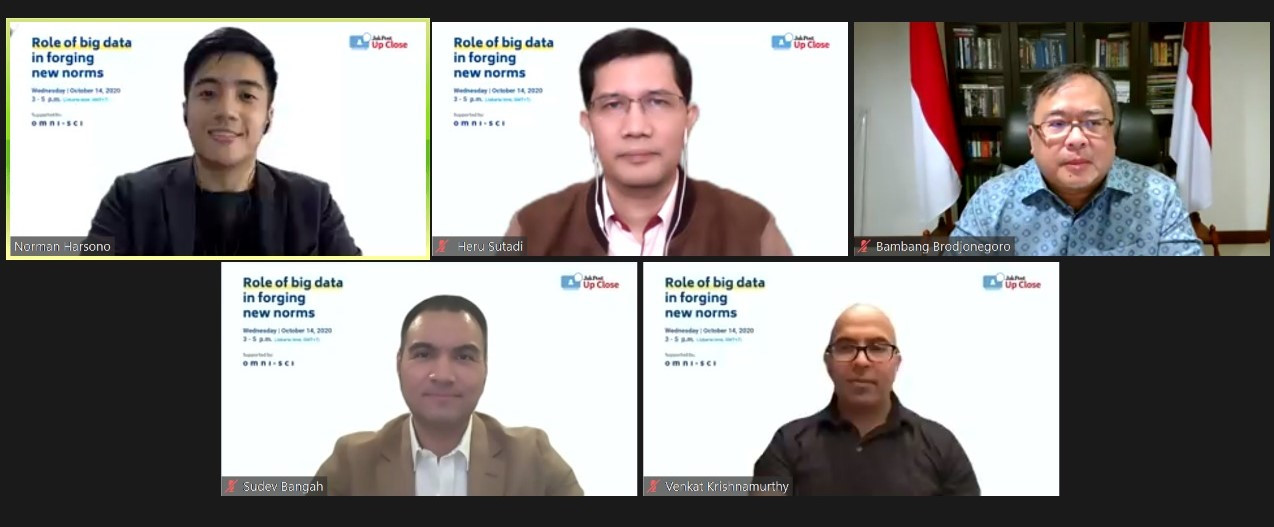Popular Reads
Top Results
Can't find what you're looking for?
View all search resultsPopular Reads
Top Results
Can't find what you're looking for?
View all search resultsGovt eyes big data for better decision-making
The use of big data both in business and government is gaining momentum as recent technological advances enable more and more people to generate large amounts of data.
Change text size
Gift Premium Articles
to Anyone
T
he government is working on the use of big data to leverage Indonesia’s digital transformation and push for data-driven decisions.
Research and Technology Minister Bambang Brodjonegoro said his office had developed a national strategy for artificial intelligence development that would serve as an example of the use of big data in the public and private sectors.
The strategy, which was launched in August, aimed at helping economic development and reducing inequality by focusing on the use of AI for health services, bureaucratic reform, education and research, food security and mobility and smart cities, Bambang said.
“We are moving toward using big data, better using artificial intelligence and more importantly for the government, we want the foundations of e-government to be completed by 2024,” Bambang said in a Jakpost Up Close webinar held by The Jakarta Post on Wednesday.
“So, going forward we hope that the government will be much more efficient and much more proactive whenever we have big decisions to make.”
But the minister said the government’s plan was still facing cultural, infrastructure and talent challenges.
Out of 83,218 subdistricts and villages, for example, 15 percent did not have access to 4G broadband cellular networks, according to data from the Communications and Information Ministry.
The use of big data both in business and government is gaining momentum as recent technological advances enable more and more people to generate large amounts of data.
The government is also developing an up-to-date, integrated and accessible data under the Satu Data Indonesia program, which will also provide a basis for making development policies, said Bambang.
By integrating the data through data.go.id, the government wants the initiative to support efforts to create an open government.
However, some 70 percent of organizations in the country have failed in developing AI-based projects and some 55 percent have failed in bringing about digital transformation projects, according to market research company International Data Corporation (IDC)
IDC ASEAN managing director Sudev Bangah said the failures were mostly because of a lack of attention to digital teams, business units to support the initiative, the tangible preferred outcome and a lack of talent.
“The good news about Indonesian enterprises is that when they fail in a project, they pick themselves up really quickly and say ‘we need to reinvest in this and understand how better we can do it’,” said Sudev.
Venkat Krishnamurthy, the vice president of product at American software company OmniSci, said technological advances had enabled companies to use the location and time aspects in big data.
But the amount and time at which people generate data on their activities also raise questions over the ownership of data, which the government must tackle when making data policies, according to Venkat.
“There has not necessarily been a well-defined set of rules or policies governing who owns what.”
Big data is more than just technology as it also relates to budgets, goals, privacy, security and ethics, according to Heru Sutadi, executive director of the Indonesia ICT Institute.
For security, Indonesia is trying to adopt the European Union’s (EU) general data protection regulation (GDPR) in developing its own national data protection law, according to Heru.
“The national data protection [bill] is being discussed at the [House of Representatives]. We hope to have personal data protection, so there is no doubt and the risks are clear.”










